CAAT Humane Education and CAAT Reduction Grants
2024 CAAT Reduction and Humane Education Grant Winners: Advancing Ethical and Innovative Research
We are proud to announce the winners of the 2024 CAAT Reduction and Humane Education grants, celebrating groundbreaking efforts in reducing animal use and promoting ethical, human-relevant scientific methods. This year, we received an impressive number of applications from researchers around the globe, showcasing the growing commitment to humane and innovative science and education.
Congratulations to the following recipients:
2024 Reduction Grant Awardee: Dr. Adam Fellows
Project: Bioengineered Arteries to Reduce Animal Use in Cardiovascular Research
Dr. Adam Fellows, Lecturer in Basic Sciences at the Royal Veterinary College in London, UK, has been awarded the 2024 CAAT Reduction Grant for his transformative work on Engineered Pulmonary Artery Tissues (EPATs). These lab-grown human artery replicas closely mimic the structure and function of real arteries, providing researchers with a superior, animal-free model for studying vascular diseases and testing treatments.
Dr. Fellow’s project summary:
Cardiovascular diseases are the leading cause of death in the Western world, which are studied using huge numbers of experimental animals – despite their poor similarity to human biology. This project involves creating replicas of human arteries in the laboratory, known as “Engineered Pulmonary Artery Tissues” or “EPATs”, to investigate the key processes underlying cardiovascular diseases, with the aim to replace current techniques which rely on animals. First, the method of production will be enhanced so that these replicas closely resemble the structure and function of human arteries. Second, artery replicas will be created using human, mouse and rat cells to identify precisely how these different species behave when exposed to disease conditions. As a result, this project will demonstrate why experiments using animal arteries are inappropriate for studies of cardiovascular disease and establish an innovative, alternative approach which has the potential to dramatically reduce animal usage across the globe.
With the CAAT grant, Dr. Fellows will further enhance EPATs by integrating multiple cell types and comparing artery functionality across species, including humans, rats, and mice. This research will validate EPATs as a reliable, ethical alternative to animal models, paving the way for more accurate and humane cardiovascular research.
2024 Humane Education Grant Awardee: Dr. Giuseppe Esposito
Project: The Human Placenta Model for Microsurgical Training
Dr. Giuseppe Esposito, MD, PhD, based in Zurich, Switzerland, has been awarded the 2024 CAAT Humane Education Grant for his revolutionary work on surgical training without the use of animals. His project utilizes human placentas—materials that would otherwise be discarded after childbirth—to create a highly realistic and ethical training model for microsurgery.
Dr. Esposito’s project summary:
Microsurgery refers to operating under a microscope. The surgical site is magnified, finest surgical precision and demanding skills are required. Through intensive training outside the operating theatre, these skills must be acquired from surgeons before operating on patients as well as practiced on an ongoing basis. To train these microsurgical skills, Dr. Esposito and his team have successfully implemented a model that utilizes human placentas, which would otherwise be discarded after childbirth. Placentas contain a lot of human vessels of different sizes surrounded by membranes and tissues. This allows microsurgeons to efficiently practice their skills in vessel dissection and in connecting vessels using very tiny microsutures (microanastomoses). With the use of placenta, Dr. Esposito’s team has entirely replaced the use of living animals for microsurgical training. The demand for training on this model has grown exponentially, and it holds significant untapped potential for further training applications. In fact, they now aim to improve the perfusion of the placenta, with the goals of making the model more realistic, expanding the training possibilities for many surgical disciplines and enabling realistic training for procedures such aneurysm clipping and tumor resection. This project may contribute to reach a breakthrough in the field of “non-animal” simulators for microsurgical techniques. Since its implementation in 2020, this model has saved over 300 animals annually at the Zurich Microsurgery Lab and provides surgeons with repeated practice opportunities, vastly improving their skills.
The CAAT grant will enhance the model further by introducing pulsatile perfusion to simulate blood flow, enabling realistic training for complex procedures such as aneurysm clipping and tumor resections.
Dr. Esposito’s innovation not only spares animals but also improves surgical outcomes, making a lasting impact on patient care and medical education. Learn more about Dr. Esposito’s work: https://www.usz.ch/en/team/giuseppe-esposito/.
Our Esteemed Jury Members
We extend our heartfelt gratitude to the jury members, whose expertise and dedication were instrumental in selecting this year’s winners. The jury was comprised of:
External Members:
– Catharine Krebs, PhD, Physicians Committee for Responsible Medicine
– Francesca Pistollato, PhD, Humane Society International
– Lindsay Marshall, PhD, Humane Society of the United States
– Nick Jukes, International Network for Humane Education
– Pandora Pound, PhD, Safer Medicines Trust
CAAT Team Members:
– Itzy Morales Pantoja, PhD
– Maren Schenke, PhD
– Kathrin Herrmann, PhD (Program Lead for CAAT Grants)
The 2024 CAAT grants highlight the potential of innovative, animal-free approaches in science and education. We are excited to support these groundbreaking projects and look forward to their contributions to advancing ethical and effective research.
The next call for applications for the CAAT Reduction Grant and the Humane Education Grant will open in mid-2025. Stay tuned for further details!
